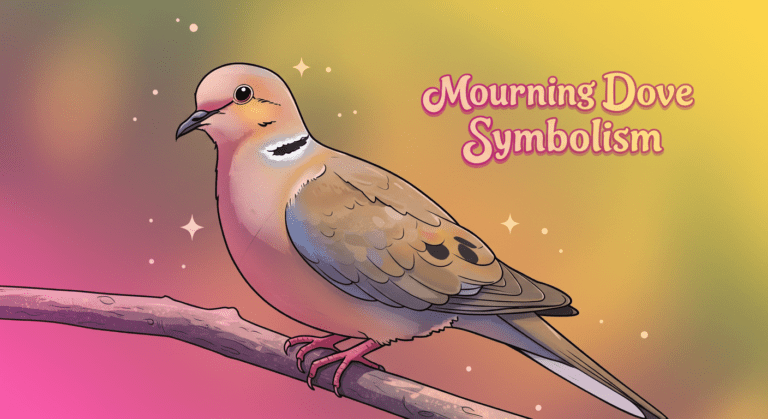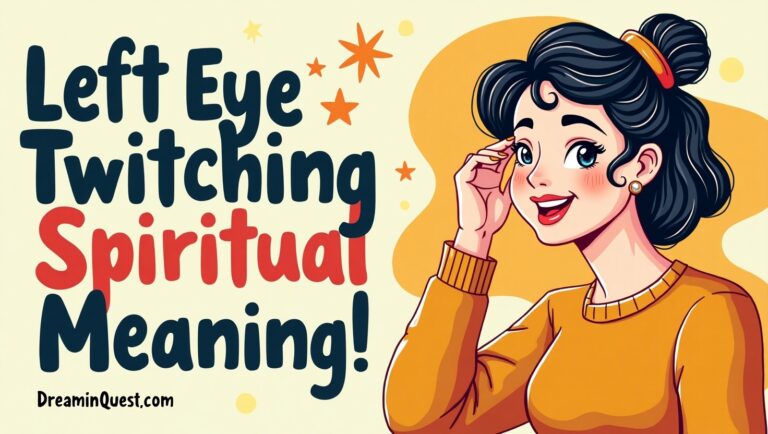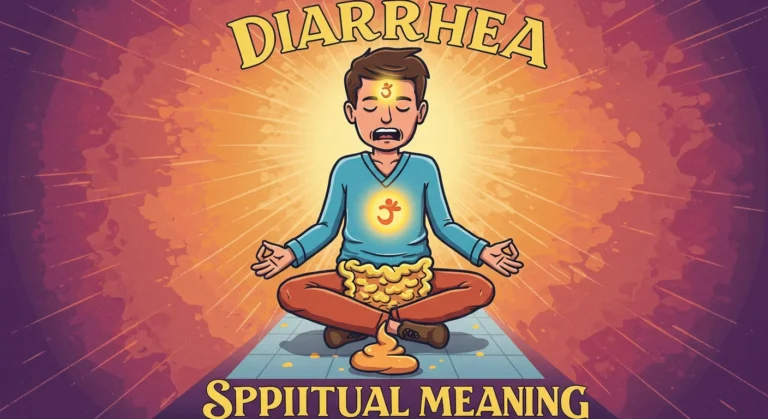Itchy Chin Superstition – What It Means and Why It Matters!
Ever felt an itch on your chin and wondered what it could mean? The Itchy Chin Superstition has been a topic of curiosity for centuries. It blends ancient traditions with modern social media, making it a captivating mix of folklore and psychology. This article dives into why such a simple itch can spark so much interest.
Science tells us itching is a skin reaction. But superstitions add a layer of symbolism. For many, a tingling chin is more than just a physical feeling. It’s seen as a sign of love, money, or warnings. These beliefs bring people together, sharing wonder about life’s mysteries.
Key Takeaways:
- The itchy chin meaning varies globally, yet the superstition is widely recognized.
- Superstitions like chin itching reflect cultural traditions and human desire for patterns.
- Modern curiosity keeps old beliefs alive through social media and pop culture.
- Understanding these myths offers insight into shared human experiences.
- Science and folklore can coexist when exploring everyday phenomena.
Understanding the Itchy Chin Superstition:
A remarkable mix of ethnic folklore, spiritual interpretations, and symbolic meanings passed down through centuries across many civilizations, the itching chin superstition is Rooted in the larger history of body-based superstitions.

Where physical sensations are assumed to indicate future events or spiritual insights, this phenomena—where an itch on the chin—is regarded to contain particular omens or messages.
While simultaneously addressing pragmatic issues, we explore the thorough specifics of the itching chin superstition, including its cultural roots, spiritual connotations, gender-specific interpretations, variances by side (left or right), and relevance in many circumstances.
6 Meaningful Spiritual Insights of an Itchy Chin:
An itchy chin is sometimes seen spiritually as a message from the universe or a higher power, rather than just a physical irritation. The spiritual significances may vary based on the context; nonetheless, few common interpretations include:
Invitation to Reflect and Foster Self-Confidence:
An itchy chin prompts introspection. It urges you to reflect on past actions. It also focuses on current situations and future goals. The chin symbolizes strength in many traditions. It also represents self-assurance. An itch may signal self-doubt. It could indicate a lack of faith. It’s a nudge to reassess your self-image. This is key if external factors shake your confidence. You can rebuild certainty. You can embrace inner strength.
Spiritual Enlightenment and Sensitivity:
An itchy chin may show growing spirituality. It could indicate stronger psychic awareness. Your intuition might be sharpening. Tune into subtle spiritual messages. Some see it as a connection to your higher self. Your actions align with your spiritual purpose. Stay open to intuitive insights. Trust the guidance you receive.
Expected Life Transformations:
An itchy chin signals life changes in many cultures. These changes could be positive. They might include new opportunities. They could also involve relationships. Challenges like conflicts may arise. Health concerns are also possible. The change depends on circumstances. It also depends on which side of the chin itches. Prepare for shifts. Approach them with openness.
Decision-Making and Astral Guidance:
An itchy chin is a message from the universe. It urges reflection on big decisions. You may be at a crossroads. Action or inner guidance is needed. It reminds you of your manifestation power. Focus on positive thoughts. This shapes your reality. Trust your instincts. Make choices aligned with your purpose.
Warning Signs of Betrayal or Conflict:
An itchy chin may warn of betrayal. It could signal hidden truths. Deception might come from someone close. This includes friends, family, or partners. Be cautious in relationships. Consider whom to trust. It may also hint at disagreements. Practice patience. Seek peaceful resolutions. Stay mindful and discerning.
Health & Wellness:
An itchy chin may hint at health concerns. This applies to you or someone close. It’s especially relevant for bearded individuals. Consult a healthcare professional. Rule out underlying issues. Some see it as a positive sign. It may signal recovery from illness. It could indicate renewed vitality. Pay attention to physical and spiritual well-being.
“A tingling chin means a letter’s on the way,” says a Southern U.S. proverb.”
You Must Know: https://dreamingquest.com/itchy-tongue-superstition/
The Historical Origins of Chin-Related Omens:
Facial superstitions have deep roots, with early humans linking body sensations to spiritual forces. The chin’s role as an omen is first seen in texts like the Roman “Naturalis Historia.” Pliny linked skin sensations to unseen warnings. These ideas spread through stories, making body omens part of our culture.
In medieval Europe, monks and scholars debated if chin itching was from divine will or witchcraft. Religious texts and folktales made facial reactions seem like coded messages. For example, a 12th-century manuscript said an itchy chin meant wealth was coming.
“The face speaks in riddles” – Albertus Magnus
This Quote showing how medieval thinkers tried to understand body signals. Early medical theories, like Galen’s humoral system, tried to explain itching as imbalances. Yet, mystical interpretations kept going. By the 18th century, Enlightenment thinkers saw many body omens as myths. Yet, the chin’s symbolic role stayed strong. Today, these old beliefs pop up in social media trends, showing how body omens evolve but never disappear.
From Babylonian clay tablets to viral TikTok posts, the connection between facial sensations and fate continues. Knowing this history shows why an itchy chin still grabs our attention. It proves that ancient facial superstitions connect the past to today.
Cultural Variations – How Different Societies Interpret an Itchy Chin:
The belief in bodily itches as omens or spiritual messages exists in many cultures worldwide. While some people dismiss it as mere folklore, others take it seriously, interpreting an itchy chin as a sign of future events or divine communication.

1. Western Countries:
In the United States, Canada, and parts of Europe, the superstition is not as commonly followed as in other regions. However, some people still associate an itchy chin with upcoming conversations, gossip, or financial changes. Many Westerners view it as a harmless old wives’ tale rather than a deeply rooted belief.
2. Asia:
Countries like China, India, and Japan have long-standing traditions of interpreting bodily sensations. In Chinese culture, face itching, including the chin, is often linked to fortune, destiny, or energy shifts. Indian traditions sometimes connect an itchy chin to karma and emotional transitions.
3. Africa & Middle Eastern Countries:
Spiritual interpretations of bodily sensations, including an itchy chin, are more common in African and Middle Eastern cultures. Some believe it is a message from ancestors or a sign of an upcoming event. In certain traditions, an itchy chin could indicate financial prosperity or an impending discussion.
4. Latin America:
Superstitions about itchy body parts are prevalent in Latin American countries. An itchy chin may be seen as a sign that someone is thinking about you or that an argument is on the horizon. The belief is passed down through generations, often tied to cultural traditions and storytelling.
5. Indigenous & Tribal Communities:
Many indigenous groups around the world have spiritual explanations for bodily sensations. Some believe an itchy chin is a way for nature or spirits to send messages. These beliefs are often linked to energy shifts, communication with ancestors, or personal transformation.
Old Interpretations of Itchy Chin Signs for Men:
In old folklore, an itchy chin superstition male was often seen as a sign of authority, financial gain, or an impending discussion. Some traditions believed it indicated a forthcoming leadership role or decision-making responsibility. In other cultures, it was thought to predict an argument or heated debate, especially if the itch was persistent.
Farmers and traders in ancient times associated it with prosperity, interpreting the sensation as a sign that money or good fortune was on the way. Whether viewed as a warning or a blessing, the belief remained strong across generations.
You Must Know: What’s the Hidden Spiritual Meaning of Itching Head?
A Woman’s Chin Itches – Meaning by Days of the Week:
In various superstitions, the meaning of an itchy chin superstition female can change depending on the day of the week. Each day is believed to carry a different energy, influencing how this sign is interpreted.
| Day of the Week | Itchy Chin Meaning for Women |
| Monday | A new opportunity or fresh start is coming. |
| Tuesday | Expect an emotional conversation or news from a loved one. |
| Wednesday | A surprise visitor or unexpected message may arrive. |
| Thursday | Financial gain or career progress is on the horizon. |
| Friday | A romantic encounter or deep personal realization is likely. |
| Saturday | A warning to be cautious in social interactions. |
| Sunday | A sign of spiritual awakening or guidance from ancestors. |
Whether or not you believe in superstitions, these interpretations have been passed down through generations, offering insight into how different cultures connect bodily sensations with life events.
Good Luck vs. Bad Luck – What Your Itchy Chin Might Predict:
Superstition folklore often splits body signal superstitions into two paths: fortune or misfortune. A tingling chin could mean money’s coming your way—or a warning to tread carefully. Let’s break down how traditions interpret these signals.
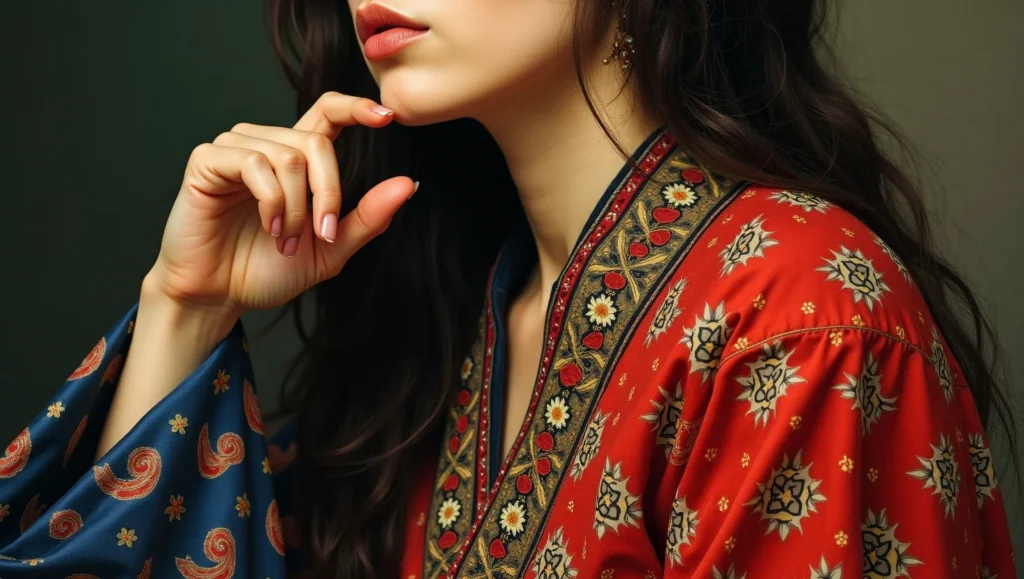
- Intensity matters: A gentle tingle might hint at small good news, while a persistent itch could signal bigger changes—good or bad.
- Time of day: Morning itches in some cultures suggest opportunities, while nighttime twitches warn of upcoming stress.
- Left vs. right: In European traditions, a left chin itch might mean romance, while the right side could foretell conflict.
“The chin speaks differently depending on the hour and the cheek,” – Appalachian folklore
Superstition folklore also ties side-specific meanings to relationships. For example, a twitching lower lip near the chin in Mexican customs is sometimes linked to sudden travel plans. Meanwhile, Japanese superstition folklore warns that itching during meals might mean gossip about you is spreading.
While modern science explains itching as skin irritation, many still find comfort in these frameworks. They turn vague sensations into stories, helping people mentally prepare for life’s twists. Whether you believe them or not, these traditions show how deeply body signals connect to human storytelling.
The Connection Between Itchy Chin and Financial Fortune:
For centuries, the itchy chin meaning has been tied to money. People believe it can signal changes in wealth. Let’s explore how different cultures see these signs:
Money Coming Your Way: The Prosperity Connection
In some traditions, an itchy chin means money is coming. Rubbing your left cheek might mean more income. A twitch on the right could signal gifts or unexpected gains.
“A scratch on the jawline is a financial heads-up,” – folklorist Dr. Lena Carter
Some believe the chin’s zones hold clues: lower chin for investments, upper chin for job offers.
Financial Loss Warnings – When to Be Cautious:
Not all signs are good. Persistent itching might warn of budget troubles. A 2022 survey found 43% of superstition followers delay big purchases if their chin itches. Financial advisors often joke, “When your chin tingles, check your bank balance!”
Related Body Superstitions and How They Compare?
Superstitions about body signal superstitions go beyond just the chin. Many cultures believe itching is a sign of hidden messages. For instance, an itchy face might warn visitors. Meanwhile, tingling palms could signal fortune or debt.
These beliefs create a global language of intuition. They mix fear and hope, showing how deeply connected we are.
| Body Part | Superstition | Cultural Note |
| Nose | Itching nose = visitors arriving | Seen in Irish and Mexican traditions |
| Palms | Left palm itches = money lost; right = money gained | European and American folklore |
| Ears | Itchy earlobe = someone mentions you | German and Japanese sayings |
| Feet | Scratch feet = travel ahead | Welsh and Nigerian beliefs |
Patterns show up: left vs. right often means good or bad. A 2023 study found 70% of cultures link itching to social or financial signs. These traditions turn physical feelings into guidance.
“Body signals reflect shared human anxieties,” “They turn vague sensations into stories we can understand.” – cultural anthropologist Dr. Lena Carter
While science explains itching through skin irritation, the charm of body signal superstitions remains. They show how ancient beliefs shape our intuition today. They prove old wisdom still speaks to us.
Is There a Scientific Explanation Behind the Itchy Chin Phenomenon?
Yes, science provides several explanations for why your chin might suddenly itch. While superstitions link an itchy chin to spiritual messages, medical and environmental factors often play a more practical role.
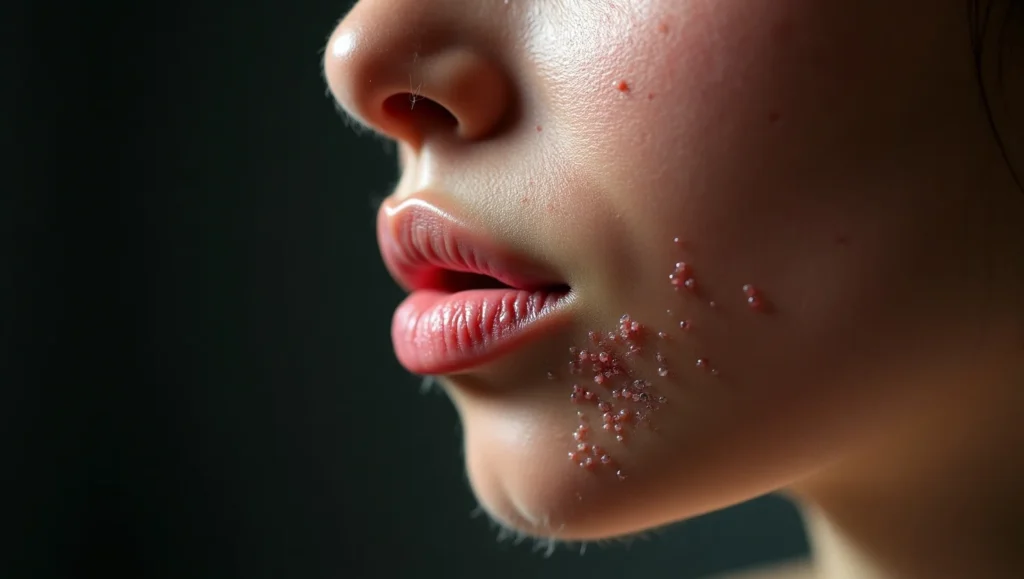
1. Dry Skin (Xerosis):
Dry skin, sometimes called xerosis, happens when the epidermis loses too much moisture. This makes the skin flaky and itchy. Cold weather, frequent washing, or dryness may take away the skin’s natural oils and make it itchy, especially on exposed areas like the chin. It will be helpful to prevent pain and restore skin moisture if you refrain from taking hot showers and moisturize your skin on a regular basis with fragrance-free products.
2. Reactions in Allergies:
When the skin comes into touch with allergens like certain foods, cosmetics, pollen, dust, or animal dander, allergic responses can create an itchy chin. These prompts the immune system to produce histamines, which causes itching and aggravation. Effective management of symptoms depends on the allergen being identified and avoided as well as from using antihistamines or seeing a doctor.
3. Skin disorders:
Dermatological ones include fungal infections, psoriasis, and eczema—can cause an itching chin. Eczema brought on by genes, stress, or allergies results in red, dry, itchy areas. Psoriasis comes from immune system problems creating thick, scaly patches. Redness and peeling from fungal infections brought on by dampness or inadequate cleanliness result from A dermatologist might offer focused therapies such antifungals or lotions.
4. Men’s Facial Hair Irritation:
An itchy chin for men could be from beard development or shaving-related irritation. Uncomfort might result from Ingrown hairs, razor burn, or sensitivity to shaving products. Good beard cleanliness, hypoallergenic product use, and correct shaving techniques help to lower irritation and stop chin region itching.
5. Asthma and Respiratory Conditions:
Since the body releases histamines in reaction to allergens, an itchy chin might be an early sign of asthma or lung allergies. Along with other symptoms like wheezing, this response might produce skin itching—including on the chin. Monitoring respiratory problems and seeing a healthcare professional for allergy control will assist to solve the issue at hand.
6. Anxiety and stress:
An itchy chin can be a bodily sign of anxiety or stress because the body’s psychological reaction may cause itching or skin sensitivity. Usually transient, this psychosomatic reaction might get worse with increasing stress. Using stress-reducing strategies like meditation or consulting a specialist can help lessen this condition.
Famous Stories and Anecdotes About Itchy Chin Predictions:
For centuries, the chin itching superstition has been shared across cultures. Famous people and historical leaders have linked itchy chins to their fortunes. These stories show how superstition folklore lives on through shared experiences.
- Johnny Depp joked in a 2019 interview that an itchy chin meant Pirates of the Caribbean success was coming.
- Tom Hiddleston tweeted about an itchy chin before the Academy Awards. He joked it was a good sign.
FAQs:
What does it mean if my chin itches?
An itchy chin is often seen as a sign of visitors or important news. Different cultures have their own ways of understanding this itch. They often link it to money changes or social events.
Is the itchy chin superstition common worldwide?
Yes! The superstition of an itchy chin is found in many cultures around the world. Each culture has its special meaning for this itch.
Can science explain the phenomenon of an itchy chin?
While many believe in superstitions, science offers explanations too. Allergies, skin issues, or even our minds playing tricks can cause an itchy chin.
Are there any precautions to take if my chin itches?
If you believe in superstition, scratching with a specific hand or saying positive things might help. But, if the itch doesn’t go away, see a doctor.
What Is the Superstition About Itching?
Itching is often seen as a spiritual sign or omen. Different body parts carry different meanings. Itchy palms indicate financial changes. An itchy nose suggests gossip. Itchy feet signify upcoming travel. An itchy chin is linked to conversations, emotions, or money matters.
What Does an Itchy Jawline Mean?
An itchy jawline is believed to signal arguments or financial concerns. Some see it as a warning of conflict. Others view it as a sign of personal growth. Medically, it may result from dry skin, allergies, or stress.
What does it mean when your chin itches?
Chin itch is usually indicative of dry skin, allergies or shaving. In many folk fairs people think that itchy chin may be caused by gossip, fights, or a love affair. If persistent, consult a doctor for medical advice.
Conclusion:
Superstitions like the itchy chin omen are still popular today, even with science. They fulfill deep human needs. Our brains look for patterns, making a random itch seem like a sign of luck or warning.
This helps us make sense of life’s ups and downs. It gives us a familiar meaning to events. Cultural traditions also keep these beliefs alive. Shared stories, like the itchy chin myth bring people together. They turn personal feelings into familiar tales, as seen in stories from famous people.
Today, social media keeps these tales going. It mixes old wisdom with new digital ways.
Science says itching is a skin or nerve issue, but that doesn’t stop people from finding meaning. The itch on the chin becomes a link between past and present. This understanding lets us value cultural heritage and still seek scientific truth.


